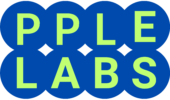Ever wonder why some startups seem to thrive while others fizzle out? Often, the secret sauce lies in collaboration. Being part of a collaborative community can make a world of difference for startup founders. Let’s dive into why this is the case.
Enhanced Problem Solving
When you’re facing a tough challenge, having a community of like-minded individuals to turn to can be invaluable.
Diverse Perspectives
Every founder has their unique way of tackling problems. When you bring together a diverse group of people, you get a multitude of perspectives. This diversity can lead to innovative solutions that you might not have thought of on your own. As highlighted by Harvard Business Review on collective intelligence, collective intelligence significantly enhances problem-solving capabilities.
Collective Intelligence
Think of it as pooling knowledge. A collaborative community leverages the collective intelligence of its members, often leading to more effective problem-solving and decision-making.
Access to Resources
One of the biggest hurdles for startups is limited resources. This is where a community can step in.
Mentorship and Guidance
Experienced entrepreneurs can provide invaluable mentorship and guidance. Their insights and advice can help you avoid common pitfalls and accelerate your growth. For tips on finding the right mentor, check out Entrepreneur’s guide to finding a mentor.
Shared Tools and Technologies
Why reinvent the wheel? Many communities have shared tools and technologies that can save you time and money. Whether it’s a shared workspace or access to industry-specific software, these resources can be a game-changer.

Emotional Support and Motivation
Starting a business is tough. Having a supportive community can make the journey less daunting.
Handling Stress and Setbacks
Every founder faces setbacks. A community provides emotional support, helping you navigate the highs and lows of entrepreneurship. Sharing your struggles and successes with others who understand can be incredibly reassuring. For more on handling stress, see Inc. on handling stress as an entrepreneur.
Celebrating Milestones Together
Milestones, big or small, deserve to be celebrated. Being part of a community means you have a group of people who are genuinely happy for your successes and are there to cheer you on.
Networking Opportunities
In the business world, who you know can be just as important as what you know.
Building Valuable Connections
A collaborative community is a networking goldmine. It opens doors to valuable connections that can lead to potential investors, clients, or partners.
Partnerships and Collaborations
Sometimes, the best way to grow is through partnerships. Being part of a community makes it easier to find potential collaborators who can help you scale your business.

Skill Development and Learning
Continuous learning is crucial for any entrepreneur.
Continuous Learning Environment
Communities often foster a culture of continuous learning. Members share knowledge, best practices, and new trends, keeping everyone on their toes and up-to-date.
Workshops and Seminars
Regular workshops and seminars are a staple in many communities. These events provide opportunities to learn new skills and stay informed about the latest industry developments.
Increased Visibility and Credibility
Being part of a community can boost your startup’s visibility and credibility.
Showcasing Success Stories
Communities love to showcase the success of their members. This exposure can increase your startup’s visibility and attract new opportunities.
Gaining Trust within the Industry
Being associated with a reputable community can enhance your credibility. It shows that you are serious about your business and committed to continuous improvement.

Conclusion
In summary, the benefits of a collaborative community for startup founders are immense. From enhanced problem-solving and access to resources to emotional support, networking opportunities, skill development, and increased visibility, being part of a community can significantly boost your chances of success. So, if you haven’t already, it’s time to find your tribe and start reaping the benefits of collaboration.
Join the Founders Lab
Ready to take your startup to the next level? Join the Founders Lab at pplelabs. The Founders Lab is an accelerator program that gives its founders the resources needed to build and scale their products, whether it’s apps, websites, or cloud solutions. The program offers access to:
- Developers: Frontend, Backend, DevOps, and QA engineers.
- Designers: UX, UI, Graphic, Content, and Product designers.
- Product Managers: Technical PMs and Scrum Masters.
- Marketers: Customer Success experts and Growth Hackers.
Don’t miss this opportunity to elevate your startup with expert support and resources. Limited spaces, you can apply here.
FAQs
What is a collaborative community?
A collaborative community is a group of individuals or organizations that work together, share resources, and support each other to achieve common goals.
How can startup founders find a collaborative community?
Startup founders can find collaborative communities through industry events, online forums, social media groups, and local business incubators.
What are the main benefits of joining a collaborative community?
The main benefits include enhanced problem-solving, access to resources, emotional support, networking opportunities, skill development, and increased visibility.
Can a collaborative community help in securing funding?
Yes, being part of a community can provide access to potential investors and funding opportunities through networking and referrals.
Are there any downsides to joining a collaborative community?
While the benefits are numerous, some potential downsides include time commitment and the possibility of facing competition within the community. However, the advantages often outweigh the drawbacks.


Leave a Reply